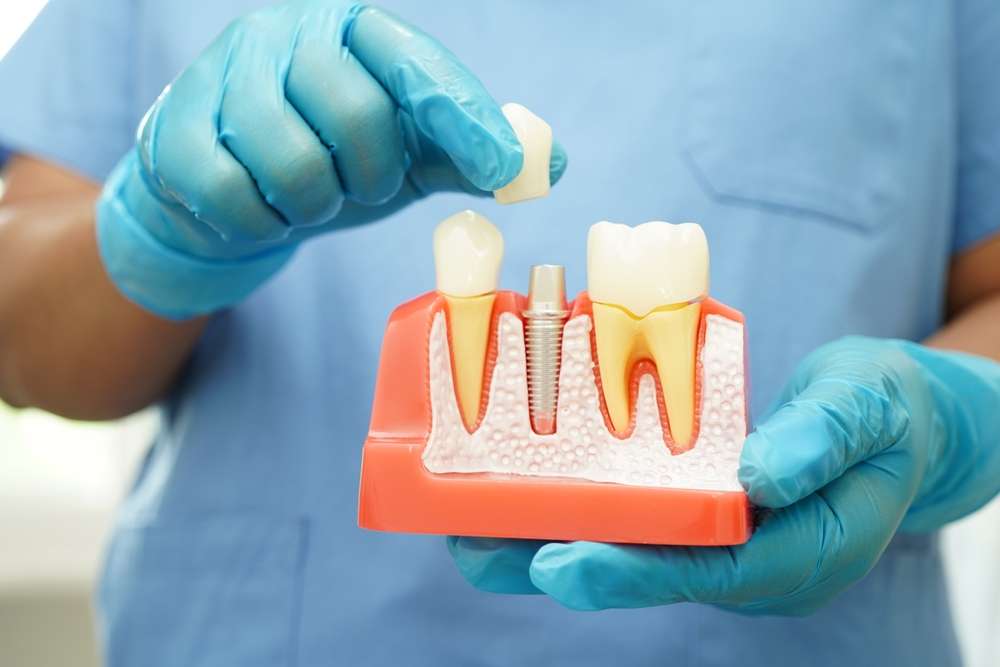Understanding Dental Implant Prices in Australia: Factors That Affect Cost
Dental implants have become a popular and reliable solution for replacing missing teeth in Australia, offering both functionality and a natural appearance. However, the cost of dental implants can vary significantly depending on several factors. From the type of implant and materials used to the complexity of the procedure and the location of the dental clinic, understanding what influences the price can help patients make informed decisions and plan their treatment more effectively.

The cost of dental implants in Australia represents a significant investment in your oral health, with prices influenced by numerous interconnected factors. Unlike simpler dental procedures, implant costs reflect the complexity of the treatment, quality of materials used, and expertise required for successful outcomes. Understanding these pricing variables helps patients prepare financially and make informed choices about their dental care.
Key Factors Influencing Dental Implant Costs
Several primary elements determine the final price of dental implant treatment. The type and quality of implant materials significantly impact costs, with premium titanium implants typically commanding higher prices than standard alternatives. Surgical complexity also plays a crucial role - single tooth replacements cost less than full mouth reconstructions requiring multiple implants and extensive planning.
The experience and qualifications of your dental surgeon directly affect pricing. Specialists with advanced training in oral surgery or prosthodontics often charge premium rates, reflecting their expertise in complex cases. Additionally, the technology used during treatment, such as 3D imaging and computer-guided surgery, can increase overall costs while potentially improving outcomes.
Regional Variations and Clinic Selection in Australia
Geographic location substantially influences dental implant pricing across Australia. Major metropolitan areas like Sydney and Melbourne typically feature higher costs due to increased overhead expenses and market demand. Regional centres often offer more competitive pricing, though patients may need to consider travel costs and follow-up appointment logistics.
Private practice settings generally charge more than public dental services, where available. However, private clinics often provide shorter waiting times, enhanced comfort amenities, and more personalised care. The reputation and specialisation of individual clinics also affects pricing, with renowned implant centres commanding premium rates for their expertise and success rates.
Tips for Managing Dental Implant Expenses
Several strategies can help manage the financial impact of dental implant treatment. Many dental practices offer payment plans or financing options, allowing patients to spread costs over extended periods. Private health insurance may provide partial coverage, particularly for the prosthodontic components of treatment, though implant surgery itself is often excluded.
Timing your treatment strategically can also affect costs. Some clinics offer promotional pricing during quieter periods, and planning ahead allows for better financial preparation. Obtaining multiple quotes from qualified practitioners helps ensure competitive pricing while maintaining quality standards.
| Treatment Type | Provider Type | Cost Estimation (AUD) |
|---|---|---|
| Single Implant | Private Practice | $3,000 - $6,000 |
| Single Implant | Specialist Clinic | $4,000 - $7,500 |
| Full Mouth (All-on-4) | Private Practice | $20,000 - $35,000 |
| Full Mouth (All-on-4) | Specialist Clinic | $25,000 - $45,000 |
| Bone Grafting (Additional) | All Providers | $500 - $3,000 |
Prices, rates, or cost estimates mentioned in this article are based on the latest available information but may change over time. Independent research is advised before making financial decisions.
Additional procedures often required alongside implant placement can significantly increase total treatment costs. Bone grafting, sinus lifts, and extraction procedures may be necessary before implant placement, each adding to the overall expense. The need for temporary prosthetics during healing periods also contributes to final costs.
Quality considerations should balance against price concerns when selecting dental implant treatment. While cost is undoubtedly important, the long-term success and durability of implants depend heavily on proper planning, quality materials, and skilled execution. Choosing the lowest-cost option may result in complications requiring expensive corrective treatment.
The complexity of your individual case significantly influences final pricing. Patients with healthy bone structure and good oral health typically face lower costs than those requiring extensive preparatory work. Pre-treatment assessments help determine the scope of work needed and provide more accurate cost estimates.
Understanding dental implant pricing in Australia requires considering multiple variables that affect treatment costs. From material quality and surgical complexity to geographic location and practitioner expertise, each factor contributes to the final investment required. By researching options thoroughly and planning financially, patients can make informed decisions about this important oral health treatment while managing costs effectively.
This article is for informational purposes only and should not be considered medical advice. Please consult a qualified healthcare professional for personalized guidance and treatment.




